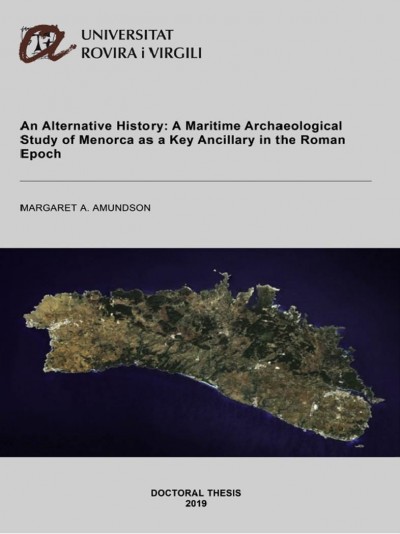Tarragona (Avinguda Catalunya, 35)
Margaret A. Amundson farà la lectura de la seva tesi doctoral aquest divendres, 5 de juliol (11 h), al Campus Catalunya de la URV.
La tesi es titula An alternative history: a maritime archaeological study of Menorca as a key ancillary in the Roman epoch i s’ha desenvolupat en el marc del doctorat interuniversitari en Arqueologia Clàssica (URV-ICAC-UAB).
Els directors de tesi són els investigadors de l’ICAC Joaquín Ruiz de Arbulo (ICAC-UV) i Josep Anton Remolà.
El tribunal de tesi està format per:
- Margarita Orfila (Universitat de Granada), presidenta
- Enrique García Riaza (Universitat de les Illes Balears), vocal
- Eva Subías (Universitat Rovira i Virgili, investigadora adscrita a l’ICAC), vocal

The island of Menorca is identified as the second largest in the Balearic archipelago in the western Mediterranean Sea, now a province of modern Spain. The original purpose of this project was to investigate Menorca’s ancient history of connectivity via maritime networks during the Roman epoch, and to determine the significance of its position within the network(s) in which it was involved. What the study has disclosed is that Menorca’s relevance and utility to Rome lay not so much in its facilitation of connectivity as in its capacity to disrupt maritime transmissions and abet actors in regional destabilization. Issues of piracy figure most prominently in this respect, although other security concerns, such as rebellion and warfare, are also considered.
If we revise the original premise that Romanization in Menorca resulted from conquest, then potential new avenues for the study of the Roman period in Menorca can be pursued, such as the motives, means and modes of intentional incorporation – at least to some extent – on the part of the native population. Viewing indigenous Menorcans as conquered subjects of Rome has effectively relegated them to the role of passive receptors of Roman culture and administration. On the contrary, archaeological evidence from persistent Talayotic sites suggests quite the opposite, that native Menorcans were in fact active agents in the construction of their own Roman identity, unique to their island.





